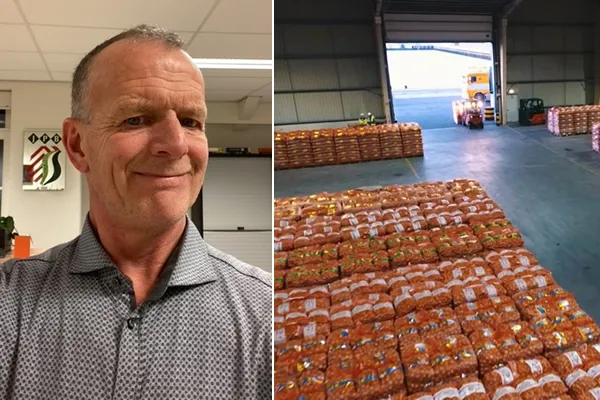The heat isn't only in the air, the situation in the onion market can also be described as quite hot. "In the last few weeks, there has been a reasonable balance between supply and demand. Now that Senegal has entered the market and no harvesting can take place from Wednesday, the market is showing signs of scarcity," says buyer William Nannes of J.P. Beemsterboer Food Traders, from Warmenhuizen.
"The price per bail of onions has now risen to around 31-32 cents. Whether we can keep this up, I don't know, it also depends on the temperature and rainfall. If we can harvest next week and the seed onions are also harvested, the supply will be much better," says William.

He finds it difficult to make a prediction about the season. "Growers are quick to point out that there are fewer Dutch onions, that exports have been running like clockwork in recent years and that costs are higher, and that this should lead to higher price level, but the demand side must also have the capacity to take that. And in the last few years there has been too high a price level which has slowed exports down."
"The big question is, in fact, who will pay the higher price. Destinations where onions are a staple food will certainly - to a greater or lesser extent - continue to buy onions, but there will also be destinations looking for alternatives if the price is too high. We expect that certain - poorer African - countries will import fewer onions, because people simply cannot afford them," says William.
"Also, countries will look for alternatives in Chinese, Turkish or Spanish onions. These are finding their way to our usual export destinations, such as the Far East and Africa. All in all, there are still many uncertainties, starting with how much the land is going to yield."
 For more information:
For more information:
William Nannes
J.P. Beemsterboer Food Traders
+31 (0)22 639 6408
wnannes@beemsterboer.nl
www.beemsterboer.nl
